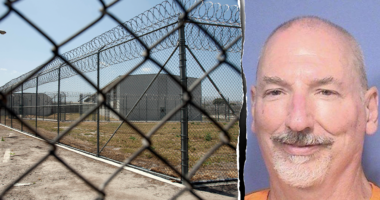Share this @internewscast.com

In a Santa Ana courtroom on Wednesday, Tim Mead, a former Los Angeles Angels executive, took the stand in a highly anticipated civil trial involving the tragic death of pitcher Tyler Skaggs. The trial focuses on a wrongful-death lawsuit filed by Skaggs’ family, who argue that the team bears responsibility for the circumstances leading to his fatal overdose in 2019.
Mead, who had been in charge of the Angels’ communications department, provided insight into the conduct and personal challenges of Eric Kay, the team employee convicted of supplying Skaggs with a fentanyl-laced pill. Mead described Kay as a generally competent employee who occasionally struggled with behavioral issues, stemming in part from his battles with depression and bipolar disorder, for which he was prescribed medication.
Having departed from the Angels shortly before Skaggs’ untimely death to serve as president of the National Baseball Hall of Fame, Mead shared that he was aware of Kay’s use of medication and intermittent mental health struggles. While Mead acknowledged Kay’s professional aptitude, he also noted incidents where Kay’s behavior was less than exemplary, such as yelling at an intern, engaging in an inappropriate relationship, and accepting money from players for risky stunts.
“He was a good worker, he was a good performer,” Mead testified. “I saw the bounce back if there was what I would call an off day. I took him at his word regarding his condition and how he was managing it,” Mead, now an adjunct professor, explained.
Mead revealed his suspicion that Kay might not have been adhering to his medication regimen, although he never had any indication of Kay using illegal substances. When questioned by the plaintiff’s attorney about why he hadn’t brought Kay’s issues to the team’s attention, Mead pointed out that Kay was enrolled in an employee assistance program, which he viewed as part of the organizational support structure.
The court proceedings continue to unfold as this painful chapter in the Angels’ history is revisited, seeking accountability and closure for Skaggs’ family and loved ones. The case brings to light the complex interplay of personal struggles, professional responsibilities, and the tragic consequences that can ensue.
In April 2019, Mead said concerns about Kay rose to a new level when he was behaving unusually at work then wound up hospitalized later that night. Mead said he went to see Kay the next day.
“He was a mess. His eyes were half rolled up his head,” Mead said. “There was obviously something very very wrong.”
Skaggs’ wife, Carli, and parents filed a wrongful-death lawsuit contending the team failed to follow its drug policies and allowed an addicted and drug-dealing employee, Kay, to have access to its players.
The Angels argue that Skaggs and Kay were involved in drugs on their own time and the team could not have prevented what Skaggs did in the privacy of his hotel room the night he died. The team has also said its officials were not aware Skaggs was taking drugs or they would have tried to help him.
The trial comes more than six years after 27-year-old Skaggs was found dead in the suburban Dallas hotel room where he was staying as the Angels were supposed to open a four-game series against the Texas Rangers. A coroner’s report says Skaggs choked to death on his vomit and that a toxic mix of alcohol, fentanyl and oxycodone was found in his system.
Kay was convicted in 2022 of providing Skaggs with an oxycodone pill laced with fentanyl and sentenced to 22 years in federal prison. His federal criminal trial in Texas included testimony from five MLB players who said they received oxycodone from Kay at various times from 2017 to 2019, the years he was accused of obtaining pills and giving them to Angels players.
Skaggs’ family is seeking $118 million in lost earnings as well as compensation for their pain and suffering and punitive damages against the team.
Skaggs had been a regular in the Angels’ starting rotation since late 2016 and struggled with injuries repeatedly during that time. He previously played for the Arizona Diamondbacks.
After his death, the MLB reached a deal with the players association to start testing for opioids and to refer those who test positive to the treatment board.
The trial is expected to take weeks and could include testimony from players including Angels outfielder Mike Trout and the team’s former pitcher, Wade Miley, who currently plays for the Cincinnati Reds.
















